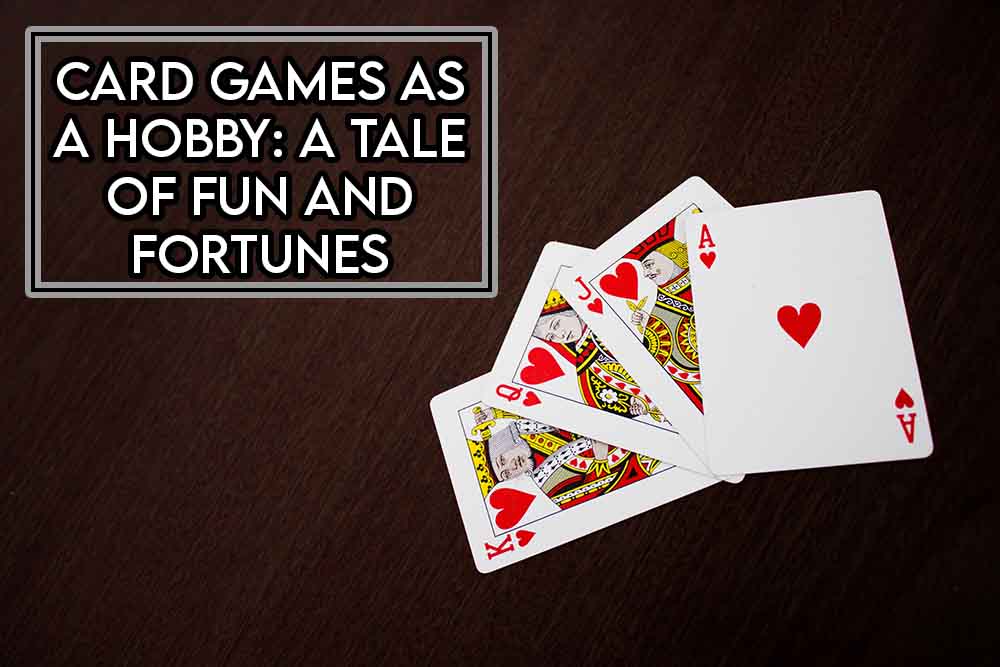An Overview of Card Games as a Hobby
Card games have been popular for many years, with people of all ages enjoying the fun and excitement of playing a good game of cards. From traditional games like poker and bridge to more modern games like Magic: The Gathering and Yu-Gi-Oh, there is a card game out there to suit every taste and interest.
One of the reasons why card games are such a popular hobby is that they are relatively inexpensive to get started with. A deck of cards can be purchased for just a few dollars, and many card games can be played with just a single deck. In addition, many card games can be played with just a few people, making them a perfect activity for a small group of friends.
Another reason why card games are so popular is that they offer a unique combination of chance and skill. While some card games are purely luck-based, others require strategy and decision-making in order to be successful. This means that even experienced players can be surprised by the outcome of a game and that no two games are ever precisely the same.
In addition to the excitement and challenge of playing card games, many people enjoy the social aspect of these hobbies. Card games are often played in groups, which can allow friends and family members to spend time together and connect with one another. Playing card games can also be a great way to meet new people and make new friends, particularly if you join a card game club or group.
Overall, card games are a fun and engaging hobby that can provide hours of entertainment for people of all ages. Whether you are an experienced player or a newcomer to the world of card games, there is a game out there that is sure to suit your interests and provide endless enjoyment.
8 Cool Facts About Card Games
Card games have been around for centuries, providing entertainment and challenging the minds of players. Here are 10 interesting facts about card games:
- The first known deck of playing cards was created in China during the Tang Dynasty, around the 9th century AD. These cards were made of paper and featured four suits – coins, strings of coins, myriads of strings, and tens of myriads – and were used for a game similar to modern-day mahjong.
- The first European playing cards were created in the 14th century and featured four suits – cups, coins, clubs, and swords – which were later standardized as hearts, diamonds, clubs, and spades. The suits and court cards – king, queen, and jack – were likely derived from the Tarot deck, which was also used for divination at the time.
- The modern 52-card deck used in most card games today was first standardized in France during the 17th century. This deck included the four suits of hearts, diamonds, clubs, and spades, as well as the familiar court cards and numbered cards from two to ten.
- The standard deck of playing cards has been used for a wide variety of games, including poker, blackjack, solitaire, and bridge. Some of these games have been played for centuries, while others, such as Texas Hold’em and Omaha, are relatively recent creations.
- Card games have been a popular form of entertainment throughout history. In the 18th and 19th centuries, playing cards were a common sight in saloons, taverns, and other gathering places. Today, card games can be played online or on mobile devices, allowing players to compete against each other from anywhere in the world.
- Card games have also been used for divination and fortune-telling. The Tarot deck, for example, is a 78-card deck featuring symbolic imagery that is used for divination and self-discovery.
- In some cultures, card games have even been considered a form of art. In Japan, for example, the game of Hanafuda, which uses a deck of 48 cards featuring flowers and other natural imagery, is considered a form of artistic expression.
- Despite the popularity of card games, some countries have banned them at various times in history. In 16th century England, for example, playing cards were banned by King Henry VIII because he believed they were a distraction from archery practice. In more recent times, some countries have imposed strict regulations on card games, particularly those played for money.
In conclusion, card games have a rich history and have been enjoyed by people all over the world for centuries. From the first known deck of playing cards in 9th century China to the modern 52-card deck used in games today, card games have evolved and adapted to become a popular pastime for people of all ages. Whether for entertainment, education, or even divination, card games continue to challenge and engage players around the world.
Follow Us
If you enjoyed our article, please bookmark our homepage and share this post on social media with your friends.





